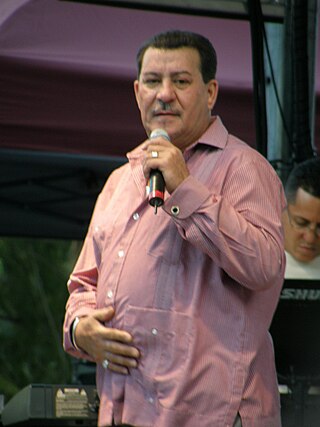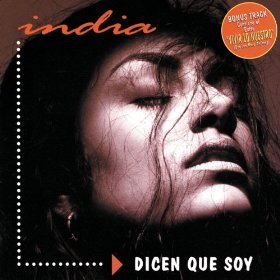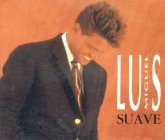
Linda Viera Caballero, better known as La India, is a Puerto Rican singer and songwriter of salsa, house music and Latin pop. La India has been nominated for both Grammy and Latin Grammy Awards, winning the Latin Grammy Award for Best Salsa Album for the Intensamente La India Con Canciones De Juan Gabriel album.
Domingo Quiñones is a singer of salsa music. He is also a composer, producer and actor.

Julio César "Tito" Rojas López, also known as "El Gallo Salsero", was a Puerto Rican salsa singer and songwriter.
Jorge Manuel López, also known as Giro Lopez, is a Puerto Rican salsa musician. Giro began his career as part of the boy band of Puerto Rico called Los Chicos. Two singles by "Giro" Jorge López, "Si Tu Supieras" and "Mi Forma de Sentir", reached #1 on the Latin Tropical Airplay. In 1995, Giro received a Lo Nuestro award for "New Tropical Singer of the Year" and in 1996 also was nominated for Best Male Tropical Singer of the Year. He won a Gold Record at the New Jersey OTT Awards, presented by Billboard magazine.

Dicen Que Soy is the third studio album by Puerto Rican recording artist La India released on September 20, 1994, by RMM Records. The album was produced by American musician Sergio George, who chose the songs for India to record with an emphasis on feminism to suit with her voice. The production mixes salsa music with other rhythms such as funk and timba. Five singles were released from the record with "Nunca Voy a Olvidarte" and "Ese Hombre" topping the Billboard Tropical Songs chart.

Regalo del Alma is the final studio album recorded by Cuban salsa recording artist Celia Cruz, released posthumously on 29 July 2003 by Sony Music Latin, following Cruz's death from brain cancer on July 16, 2003. It is Cruz's seventieth album.

"El Amor" is a song by Puerto Rican singer Tito El Bambino. It was composed by Tito and Joan Ortiz and released on February 9, 2009, as the second single from his third studio album, El Patrón (2009). The song blends the sounds of Latin pop with cumbia and merengue. A regional Mexican and a salsa version were recorded and included on the special edition of the album.

"Ella y Yo" is Aventura's second single from their fourth studio album God's Project and features reggaeton singer Don Omar. The song is also in Don Omar's compilation album, Da Hitman Presents Reggaetón Latino.

Ojalá Que Llueva Café is the fourth studio album by Dominican singer-songwriter Juan Luis Guerra released in 1989 by Karen Records. It is considered one of his most emblematic and important albums. The album set the musical path for his later albums, re-formulating Dominican merengue and bachata music through the contemporary elements of pop, rock, salsa, or jazz. Incorporating socially conscious lyrics with danceable merengues and romantic-poetic bachatas, the album is considered one of the most important albums of his discography.

Trópico is the fifteenth compilation album by the Guatemalan singer-songwriter Ricardo Arjona, released on 13 June 2009. The album consists of Arjona's past songs, drawn from Animal Nocturno (1992) to Galería Caribe (2000), which are performed either by him, or by other Latin artists, including Marc Anthony, Tito Nieves and Gilberto Santa Rosa. The album follows Sony's release of Simplemente Lo Mejor in December 2008, and it marks the second compilation album released after Arjona's departure to Warner Music on September 2008.
"Los 12 Discípulos" (English: The 12 Disciples) or "Quítate Tu Pa' Ponerme Yo" (English: Move So I Can Come) is a song by Puerto Rican rapper Eddie Dee featuring various artists from his fifth studio album, 12 Discípulos (2004). It features eleven other reggaeton musicians, who were among the most requested in the genre at the time. These include Eddie Dee along with Daddy Yankee, Ivy Queen, Tego Calderón, Voltio, Vico C, Zion, Lennox, Nicky Jam, Johnny Prez, Gallego, and Wiso G.

Vendetta: The Project(English: Revenge: The Project), also known simply as Vendetta, is the ninth studio album by Puerto Rican reggaetón singer-songwriter Ivy Queen, released on 3 February 2015. An extended play version of the album was released on 9 December 2014. The studio album version was originally announced for a release in February 2014, and later some time in 2014.
"Ese Hombre" is a song written by Ana Magdalena and Manuel Alejandro and performed by Spanish recording artist Rocío Jurado for her studio album Señora (1979). It was released by RCA Records as a B-side to "Señora" in 1980. Lyrically, the song is about a womanizer who lures women into a wrongful relationship filled with lies and deceit.

"Suave" (transl. "Smooth") is a song by Mexican singer Luis Miguel from his ninth studio album, Aries (1993). The song was composed by Kiko Cibrian and Orlando Castro with the former handling its production along with the artist. It is a dance number in which the singer describes a woman who bewitches him and becomes the woman of his dreams. The song received positive reactions from two music critics. It was acknowledged as an award-winning song at the 1995 Broadcast Music Inc. (BMI) Latin Awards. Commercially, the song reached number nine on the Billboard Hot Latin Songs chart in the United States. Its music video was directed by Kiko Guerrero and filmed in Acapulco, Mexico, and features Miguel dancing in a beach with several women.

Salsa Big Band is the fourth studio album by Rubén Blades and Roberto Delgado & Orquesta, released on 29 April 2017 by Rubén Blades Productions. After the release of Son de Panamá in 2015, also recorded with Delgado & Orquesta, Blades decided to record another album with them, on which included eleven songs. He had previously recorded nine on the songs, and two were covers of songs written by Luis Demetrio and Rene Touzet. Delgado was the producer for the álbum. Blades' principal inspiration for the album was his admiration for the work of Puerto Ricans performers such as Tito Puente, Tito Rodríguez and Willie Rosario, and the big band sounds of the 1950's.
"Esperándote" is a song performed by Puerto Rican salsa singer Tito Rojas on his studio album Por Derecho Propio (1995). It was written by Alicia Baroni and released as the lead single from the album. The track was nominated in the category of Tropical Song of the Year at the 8th Annual Lo Nuestro Awards in the same year, ultimately losing to "Abriendo Puertas" by Gloria Estefan. The track was recognized as one of the best-performing songs of the year at the 1996 ASCAP Latin Awards. It became his first number one song on the Tropical Airplay chart.
"En las Nubes" is a song written by Gustavo Márquez and first performed by Mexican ballad singer Tito Livio on his studio album Fíjate de Mi (1993). It was covered by Puerto Rican salsa singer Jerry Rivera on his fourth studio Cara de Niño(1993). Another salsa cover version of the song was recorded by American musician Edgar Joel on his studio album Me Atrapa la Noche (1994) with Anthony Colón providing the lead vocals for the song. Joel's version reached number-one on the Billboard Tropical Airplay chart. His cover was recognized as the best-performing song of the year at the 1995 ASCAP Latin Awards. Puerto Rican singer Julián singer covered it on his studio Siete Mañanas (1995). Julián's version peaked at number ten on the Latin Pop Airplay chart.

"Mi Mayor Venganza" is a song by Puerto Rican singer La India from her fifth studio album, Sobre el Fuego (1997). The song was written by Rodolfo Barreras and produced by Isidro Infante, and released as the album's second single in 1997 by RMM Records. It is a salsa song, in which La India tells the woman to keep the man who cheated on the artist out of revenge.

"Por Mujeres Como Tú" is a song by Mexican singer Pepe Aguilar from his 1998 studio album of the same name. The song won Billboard Latin Music Award for Hot Latin Song of the Year and was nominated in the category of Regional Mexican Hot Latin Track of the Year. It also won the Lo Nuestro Award for Regional Mexican Song of the Year in 1999. In addition, the track was recognized as song of the year on the Regional Mexican field at the ASCAP Latin Awards. In 1999, Puerto Rican salsa singer Tito Rojas covered "Por Mujeres Como Tú" on his studio album, Alegrías y Penas. Rojas' version peaked at #1 on the Tropical Airplay, his second and final #1 before his death. Rojas' cover was nominated in the category Tropical Song of the Year at the 2000 Lo Nuestro Awards, but lost to "Píntame" by Elvis Crespo. It was recognized as one of the best-performing songs of the year at the ASCAP Latin Awards under the salsa category in 2000.
This article includes an overview of the major events and trends in Latin music in the 1970s, namely in Ibero-America. This includes recordings, festivals, award ceremonies, births and deaths of Latin music artists, and the advancement and adjournment of the genre from 1970 to 1979.













